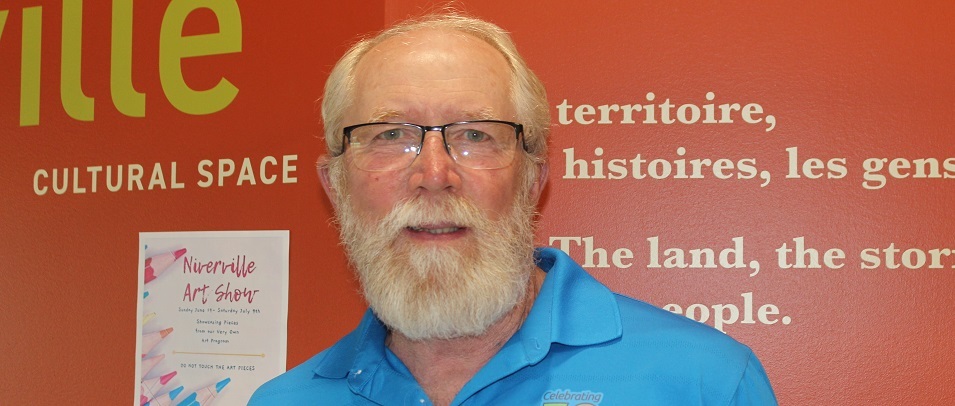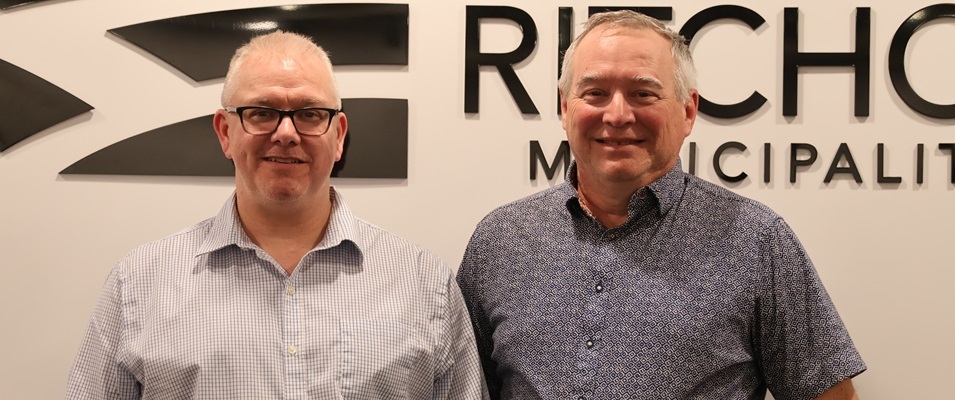
Chris Wiebe is incumbent number three on Niverville’s town council to announce his plan to run for re-election this year. If he wins back his seat on October 26, it will be his third term in office.
Wiebe sees himself as the guy behind the scenes getting stuff done. Running for mayor was never a consideration for Wiebe, although he readily admits that his decision to run as councillor again was sealed when Mayor Myron Dyck decided to let his name stand for another term.
Already into retirement, Wiebe says that he’s got a lot more to give and his position on council has helped him to feel relevant in the community that he loves.
“I think I have stuff to add,” he says. “I’m enjoying it and enjoying the people on council.”
Municipal governance, he adds, has its perks and limitations.
“Local is the purest form of government. You have interactions at the grocery stores and coffee shops… with the very people that have elected you to government.”
But that same electorate needs to recognize that no municipal government has carte blanche decision-making power, Wiebe explains. They are still very much regulated by provincial and federal policy.
A self-employed businessman for 38 years, Wiebe began his first term on council with a passion to open up opportunities so that other small or up-and-coming businesses could thrive in Niverville.
Just eight years ago, Wiebe took note of the state of the local business park, which was falling short of meeting its full potential.
“It was a shared initiative with the Hanover municipality,” Wiebe says. “The industrial park was in Hanover and controlled by Niverville, but nobody marketed it. Nobody did anything with it.”
Today, the land on which the business park stands has been annexed by the Town of Niverville and phase three of the site is almost at capacity.
“We’re making provisions for larger lot sizes for bigger industry [in phase four],” he says. “As we’re filling up, we’re seeing more interest.”
Wiebe was integral to the development of the business park. Using a model from back in his business days, Wiebe says they hired a contractor to develop the lots at the developer’s expense, leaving the town holding no debt on it. The developer, in turn, was compensated by a portion of the proceeds from each lot sale.
As well, Wiebe says council determined that infrastructure such as water and sewer could be added by the landowner later, based on the business’s specific needs, thus allowing council to keep lot prices affordable.
“We wanted an incubator-type industrial park. We wanted people to be able to start here and grow here rather than us trying to invite [existing] businesses from Winnipeg or Toronto. Look at the model that happened in Rosenort. People started businesses there and became very successful there.”
Water and sewage infrastructure for the residential parts of town, though, will be of high importance to Wiebe if he’s re-elected. Aging sewer pipes in the older neighbourhoods are eroding and the lagoon north of town is nearing the end of its life.
“We have to address how we are going to continue to grow [our community],” he says. “Our lagoon system is full. We are at the point where we would have to stop development. We’re that close.”
With the near completion of the new water treatment plant, which will be able to service up to 15,000 residents, plans for a wastewater treatment plant located at the site of the existing lagoon are already underway. Wiebe says council has been happy to collaborate with at least three other neighbouring municipalities on what will be a multimillion-dollar cooperative investment.
While these projects are necessary and somewhat innovative in nature, Wiebe says not many projects over his past eight years can trump what the Community Resource and Recreation Centre (CRRC) and attached high school did for the community.
Wiebe was proud to work together with different levels of government and the Hanover School Division (HSD) to help create the first-of-its-kind complex in Manitoba. Wiebe says he was able to offer insight from his many years of experience dealing with contractors.
Here again, council opted for a unique approach on the CRRC build. They invited contractors to draw up designs based on the parameters provided by council regarding the components the facility needed to have and the budget restrictions they were under. Council received eight designs in total and, with the help of an engineering firm, chose the best one.
“We went with a design build,” Wiebe says. “That took some pressure off us by not doing the design ourselves. One of the advantages to the community [of a design build], for one, was that we didn’t have to put up almost $3 million for the design.”
Collaborating similarly with HSD, Niverville High School is now the only school in the division with a paved parking lot.
“I really think this [complex] is a huge feather in the cap for the community and the surrounding area.”
The two most important character traits he’s had to develop during his years on council he says was accepting the fact that decision-making was done as a team rather than solo, as it had been during his years running a business.
The second trait, he adds, is something he continues to work on.
“You have to be able to take criticism,” Wiebe says.
The most difficult for Wiebe is the criticism from residents who don’t understand the full story behind decisions that council is making.
As for getting along with the rest of council over the years, Wiebe says there’s plenty of respect to go along with the teamwork happening in council chambers.
“We have good debates. We come from different angles on almost every subject, but we walk out of there as a team.”
Regarding diversity on council, Wiebe says there’s no easy way to ensure a mix of genders, abilities, and cultural backgrounds.
“We have to enable diversity,” he points out. “We can’t guarantee it, but we have to make it an equal playing field for everyone… From everything I’ve seen around our table and within our staff, we’re very sensitive to inclusion.”




















